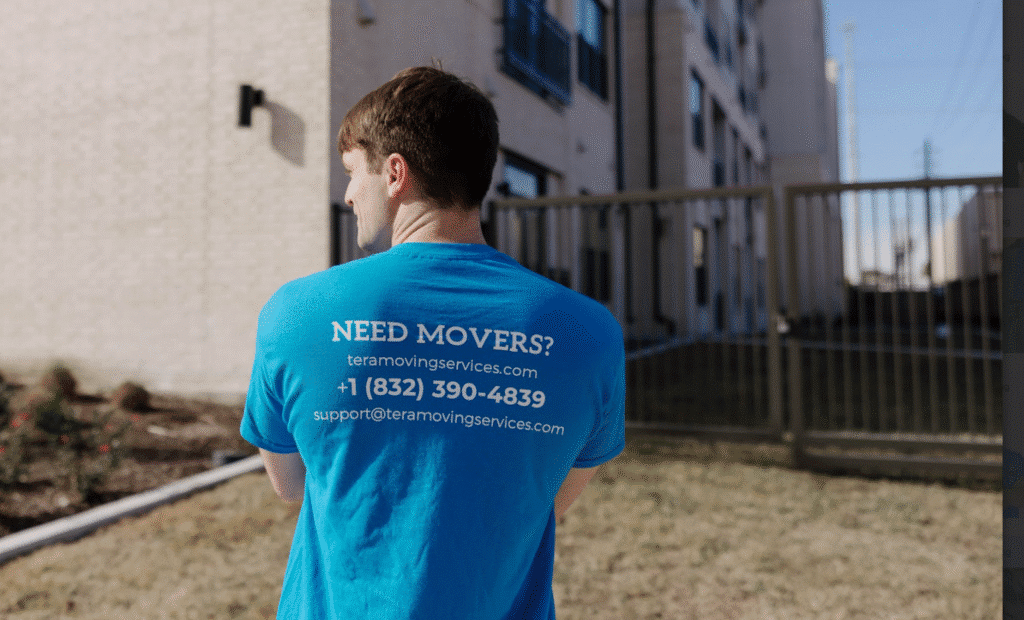Relocating to a new home is often considered one of life’s most stressful events. Even when the move is a positive one—a new job, a larger house, or a fresh start—it can trigger emotions that catch people off guard. What seems like a practical task quickly becomes emotionally complicated.
This is because moving isn’t just about transporting belongings. It represents leaving behind familiar routines, relationships, and spaces that shaped everyday life. The process feels like a disruption of identity as much as a change of address. Understanding this psychological weight helps make sense of the emotions many people experience during a move.
A professional moving company may relieve some logistical pressure, but managing the mental and emotional toll requires more. Tera Moving Services emphasizes that awareness and preparation are just as important as boxes and trucks when it comes to handling a relocation smoothly.


Why Moving Triggers Stress
Our brains are wired for stability and comfort. We rely on routines, surroundings, and familiar people to create a sense of safety. A move disrupts that system, even temporarily.
Common emotional responses include:
- Irritability or fatigue from constant decision-making
- Nostalgia when leaving behind meaningful spaces
- Anxiety about the unknown
- Difficulty concentrating or making small choices
These feelings don’t mean the move is a mistake—they’re natural reactions to disruption. Recognizing them as part of the process reduces confusion and guilt.
The Strain of Decision Fatigue
One hidden source of stress is the sheer number of choices involved in a move. From selecting what to pack and what to discard to choosing neighborhoods and furniture placement, decisions pile up quickly.
This leads to “decision fatigue,” where the brain becomes overloaded. People often respond by procrastinating, making impulsive choices, or becoming indecisive. Taking structured breaks and delegating tasks to a trusted moving company can help preserve mental energy for important decisions.


The Emotional Weight of Letting Go
Packing is more than a physical task—it’s emotional inventory. Items like baby clothes, old photos, or inherited furniture carry memories and meaning. Choosing whether to keep or discard them often stirs grief, nostalgia, or hesitation.
This grief doesn’t indicate regret; it reflects the emotional value of objects. Accepting the sadness that comes with letting go allows people to move forward with greater clarity.
Control and Change
Many people find moving stressful because it reduces their sense of control. For children, seniors, or those already dealing with anxiety, this loss of stability feels especially intense.
Coping strategies include focusing on what can be controlled:
- Maintaining daily routines like exercise or meals
- Creating a realistic packing schedule
- Choosing the moving company you feel most comfortable with
- Preparing a “first-night kit” for immediate comfort
These small actions restore balance in the middle of chaos.

Strategies to Cope With Moving Stress
Acknowledge Emotions
Give yourself permission to feel overwhelmed, sad, or anxious. Journaling or talking with friends can help process the emotions rather than bottling them up.
Schedule Breaks
Build in downtime during packing and planning. Short walks, music breaks, or meditation reduce tension and refresh focus.
Keep Familiar Routines
Maintaining rituals such as morning coffee on the porch or bedtime stories with children brings stability amid disruption.
Pack a Comfort Box
Include essentials like snacks, bedding, and sentimental items in one box for immediate access at the new home. This reduces the shock of transition.
Lean on Support
Whether it’s friends, family, or a trusted moving company, sharing responsibilities prevents burnout. Delegation lightens both physical and mental loads.

When Stress Becomes Overwhelming
Most moving-related stress is temporary, but for some, it becomes more serious. Warning signs include insomnia, withdrawal, panic attacks, or emotional numbness. These can indicate the need for professional support from a counselor or therapist.
Addressing stress early prevents it from overshadowing the excitement of a new chapter. Relocation can even become a period of personal growth if approached with the right tools.
The Emotional Value of Professional Help
A supportive moving company can’t erase the emotions of relocation, but it can reduce practical burdens. Having trusted professionals handle logistics frees mental space for processing feelings and focusing on family needs.
Tera Moving Services has worked with clients in every stage of transition—calm, excited, nostalgic, or overwhelmed. What many clients share afterward is gratitude for the combination of practical support and emotional relief that comes from not facing the move alone.

Building Optimism for the Future
One way to manage emotional stress is to focus on the opportunities ahead. Setting up a new home, exploring neighborhoods, or decorating fresh spaces can be exciting. Visualizing life in the new environment shifts focus from loss to possibility.
Celebrating small milestones—like unpacking the first room or meeting a new neighbor—builds momentum and confidence during the adjustment period.
Final Thoughts
Relocation is more than a checklist; it’s an emotional journey. The disruption of routines, decisions, and attachments makes moving uniquely stressful. Recognizing these challenges and preparing strategies to manage them allows families to move with more resilience.
With planning, support systems, and trusted professionals, relocation can feel less overwhelming and more like an opportunity. Tera Moving Services encourages clients to honor both the emotional and practical sides of moving. By partnering with a reliable moving company and acknowledging the psychology of change, you’ll not only arrive at a new address—you’ll begin a new chapter with confidence.
- 0shares
- Facebook0
- Pinterest0
- Twitter0
- Reddit0


